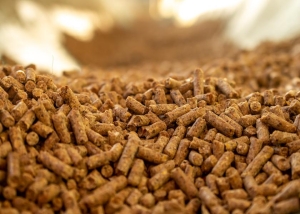


(Posted on 23/04/24)
The American Feed Industry Association (AFIA) has commended Representatives Ashley Hinson, R-Iowa-02, and Elissa Slotkin, D-Mich.-07, for introducing the Securing American Agriculture Act (H.R. 8003). The bill would require the U.S. Department of Agriculture to study global supply chain markets for U.S. agricultural inputs, including feed ingredients like vitamins and amino acids used in animal feed and pet food production. The AFIA supports this bill, given its members’ concerns over the vulnerability of the animal food supply chain given China’s domination of the vitamin supply market.
AFIA’s President and CEO Constance Cullman issued the following statement upon the bill’s introduction: “We thank Congresswomen Hinson and Slotkin and bipartisan cosponsors for introducing the Securing American Agriculture Act – a bill that will help U.S. decision-makers better understand how intrinsically linked our food and feed supply is with China’s input manufacturers as they manage the country’s delicate relationship with China. AFIA’s feed and pet food manufacturing members are gravely concerned about the United States’ dependency on China for vitamins and other critical inputs necessary to produce complete diets for America’s domestic livestock and pets. Just like us, animals require daily vitamins for healthy growth and development. Our industry is prepared to work with the federal government to do everything in its power to head off these risks before they cause catastrophic animal welfare, food security or economic repercussions."
Vitamins are essential for promoting healthy growth and productivity in animals. In the United States, animal food manufacturers heavily rely on China for a consistent supply, with limited alternatives. China holds a commanding position in global vitamin production, exclusively manufacturing key vitamins such as B1, B3, B8, B11, B12, C, D3, and DK3. Additionally, China produces nearly 85% of the some of the world's essential amino acids crucial for animal feed, underscoring its significant influence in the global market. This dependency raises concerns about supply chain vulnerabilities and highlights China’s critical role in American food security.
The AFIA is advocating for strengthening and diversifying the U.S. vitamin supply chain to reduce economic vulnerabilities and strategic risks. This requires a multifaceted approach that balances economic interests with broader strategic considerations to ensure resilience in both the animal food and farm sectors.
ADM and Mitsubishi Corporation have signed a non-binding memorandum of understanding to form a strategic... Read more
ESL Shipping and global steel manufacturer SSAB have agreed on a multi-year extension of the agreement... Read more
Anglo American’s Sakatti copper and polymetallic project in Finland has been designated as a &... Read more
FEFAC, representing the EU compound feed and premix manufacturers, noted with deep concern the announced... Read more
Catering to the growing demand from India’s confectionery, infant formula, and dairy sectors,... Read more
Khalifa Economic Zones Abu Dhabi – KEZAD Group, the largest operator of integrated and purpose... Read more
Rio Tinto will invest $1.8 billion1 to develop the Brockman Syncline 1 mine project (BS1), extending... Read more
Catherine Cobden, President and CEO of the Canadian Steel Producers Association (CSPA), has released... Read more
Enough domestic ferrous scrap is available for electric arc furnace (EAF) steelmakers to supply nearly... Read more
Cargill’s Ocean Transportation business and leading tanker shipping company, Hafnia, have joined... Read more